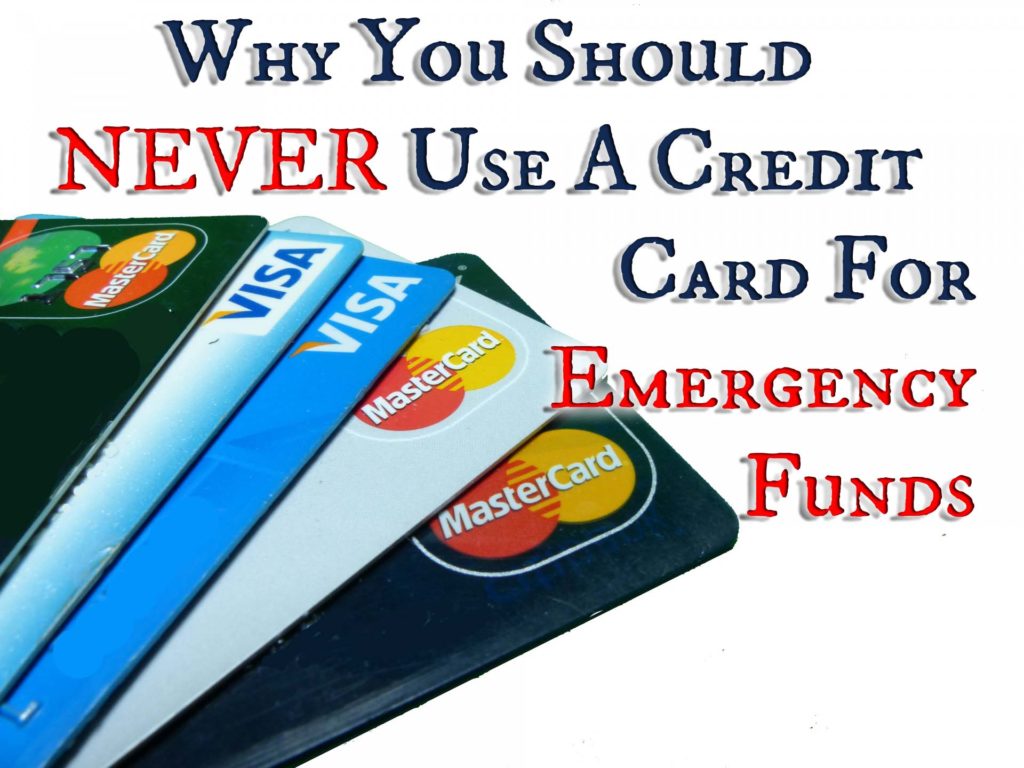While it’s important to have an emergency fund, one of the biggest mistakes that I see people making (and believe me, I have done this myself at one point) is using a credit card for emergencies. I think most people have this mentality, but if you’re serious about getting your finances under control and preparing for the worst, then a credit card is the last thing you need. In fact, you should pretend you don’t even have one when it comes to emergencies. Let me explain.
First, I want you to imagine that you just lost your job and need a little bit of float money until you can get the next steady paycheck going. It happens to everyone. Now, let’s look at two scenarios.
Scenario 1: Your credit card is your emergency fund
So, you’ve got at least a month or two’s worth of expenses that still must be paid, but you confidently decided to hold onto your credit card for just these moments. Boom! You pull it out and swipe away and continue living in the same style as before, because you have all that money at your fingertips. Of course, you can’t pay your rent with a credit card, but no worries… you can just draw cash from the card! No problem. Until you get the bill.
Now, you’ve got your next job going and we’ll say it probably pays about the same as your previous one, which was definitely paying your bills fine… except now you have an additional huge credit card bill that you’ve got to get back in order or else pay huge amounts of interest on. How long will it take you to pay off your month’s salary on a credit card, plus all the interest? Definitely more than a month because, remember, you still have other bills to pay.
Now, let’s take a look at the alternative.
Scenario 2: You have an actual emergency fund
In this scenario you’ve still lost your job, but you have money you’ve saved back for a rainy day. So, you immediately go to the bank and figure out how much money you have saved back, and you start being careful with the money, as you can easily see it dwindling until you get back on your feet. You are probably going to be a bit more conscious of how much money you have and might even say no to going out for a drink with a friend, saying you need to keep your finances in check just in case.
Then, you finally get your next job and, whether you’ve used up all of your savings or not, life immediately resumes basically the way it has before. You pay your bills, and start saving back a little extra to replenish your emergency funds, but that’s it. No debt. No additional burden or stress.
I can definitely tell you which seems more desirable to me.
Lesson: Credit cards are not free money
Long story short, if you use a credit card in emergencies, all you’re doing is adding debt to your list of problems. Credit cards aren’t free money, and it’s not the same as spending money you’ve saved. It’s spending money you haven’t earned yet, and you have to pay it back eventually. I always tell people who are in credit card trouble to treat those cards as an extension of income. Budget as if you’re simply borrowing money from your next check, and if you can’t come up with that amount of money in a month or two tops, then you shouldn’t be putting it on your card.
If you are really nervous about money problems, then by all means, keep a credit card as a second safety net after the emergency fund is gone. That way you know you’ll be able to make ends meet if you have to, but make sure that you keep it empty and keep it as a last resort.
So, do you have an emergency fund? Have you ever used it? Tell me in the comments below!





